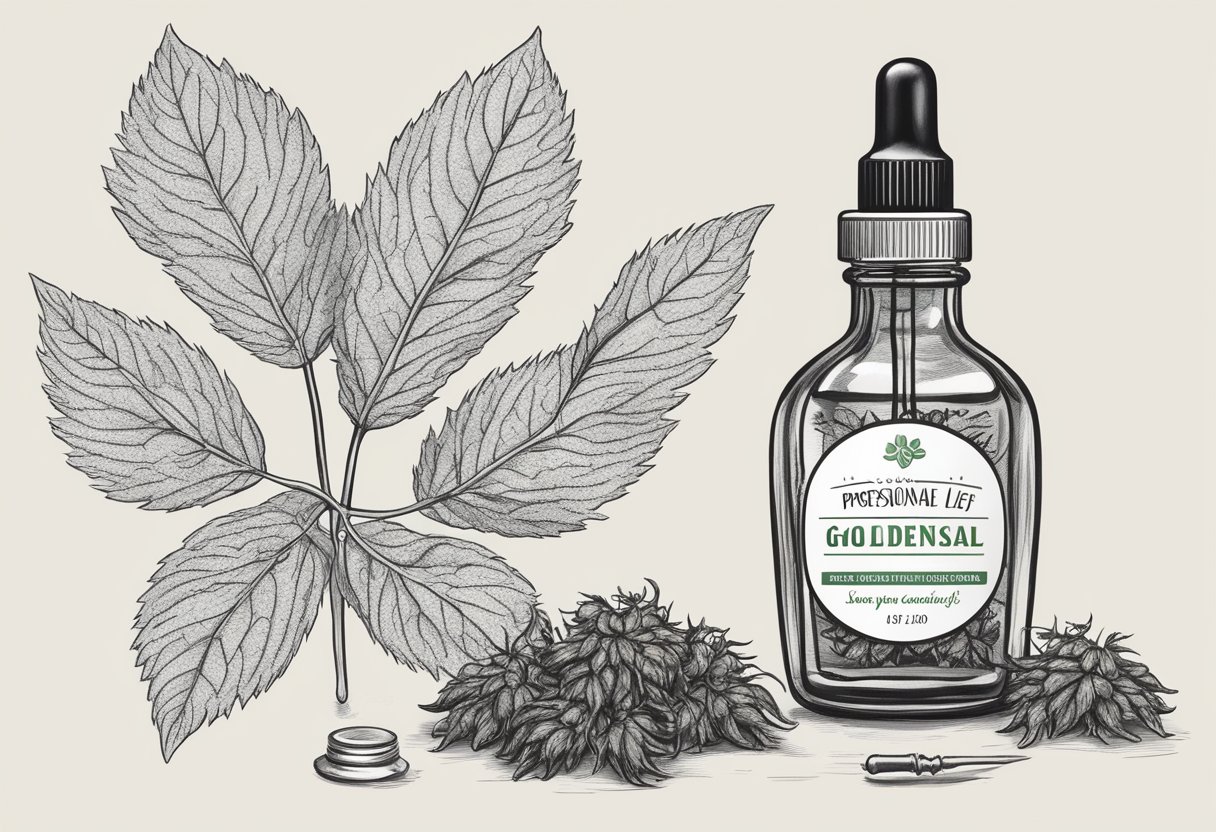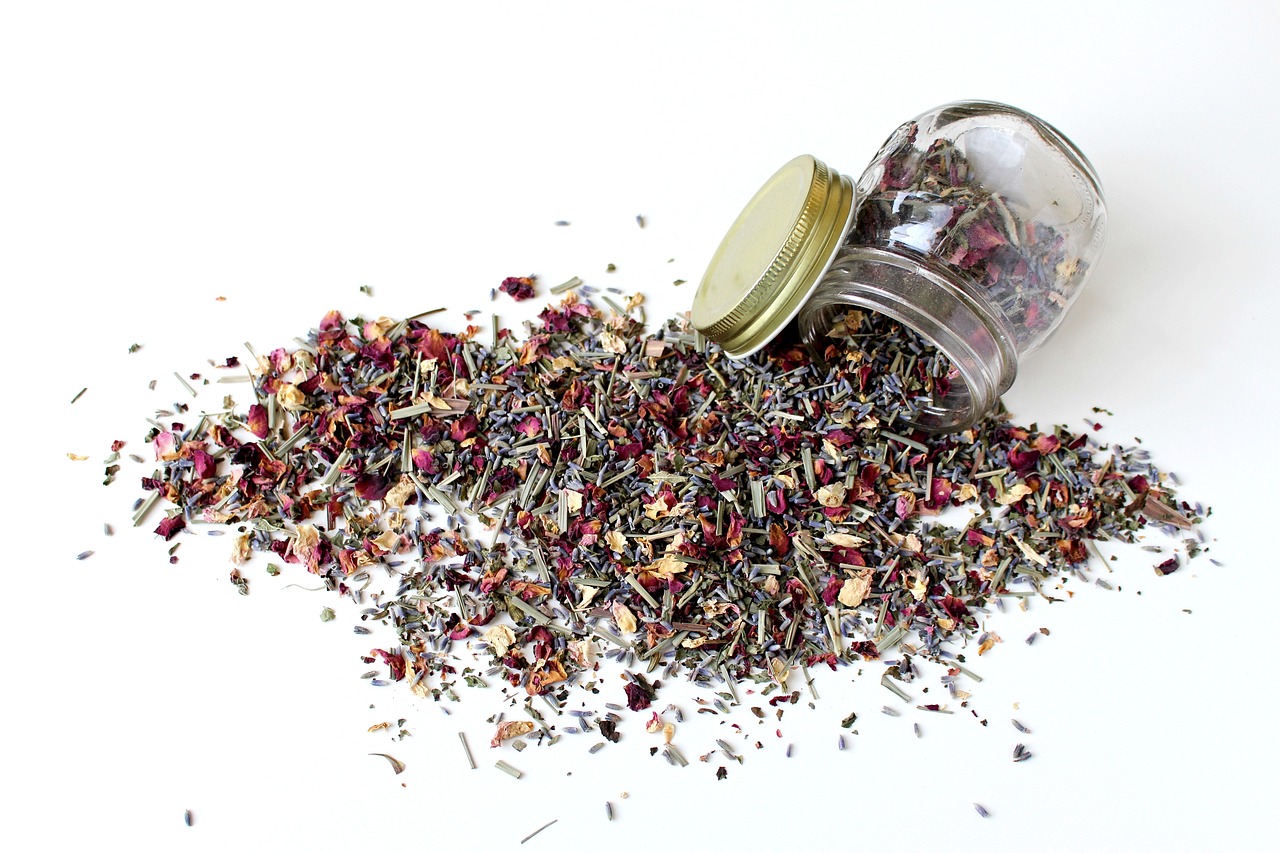Herbal antibiotics are natural alternatives to synthetic antibiotics for treating various infections, including tooth infections. Tooth infections can occur due to poor oral hygiene, gum disease, cavities, or trauma. They can cause severe pain, swelling, and fever, and may lead to complications if left untreated. While antibiotics are commonly prescribed for tooth infections, they may have side effects, promote antibiotic resistance, and kill beneficial bacteria in the body. Therefore, many people are turning to herbal antibiotics for tooth infection as a safe and effective option.
Disclaimer: This article is provided for informational purposes only and should not replace professional medical advice. Please consult with a qualified healthcare practitioner or herbalist before using any herbal remedies.
Herbal antibiotics for tooth infection refer to plant-based remedies that have antimicrobial properties and can help fight off oral pathogens. They may include herbs, spices, roots, and extracts that have been used for centuries in traditional medicine. Some of the most popular herbal antibiotics for tooth infection include garlic, clove, oregano, tea tree oil, goldenseal, myrrh, and echinacea. These herbs can be consumed orally, applied topically, or used as mouthwash to kill bacteria, reduce inflammation, and promote healing.
Key Takeaways
- Herbal antibiotics are natural alternatives to synthetic antibiotics for treating tooth infections.
- Garlic, clove, oregano, tea tree oil, goldenseal, myrrh, and echinacea are some of the most popular herbal antibiotics for tooth infection.
- Herbal antibiotics can be consumed orally, applied topically, or used as mouthwash to kill bacteria, reduce inflammation, and promote healing.
Understanding Tooth Infections
Tooth infections are a common dental problem that can lead to serious health complications if left untreated. A tooth infection, also known as a dental abscess, is a bacterial infection that occurs when bacteria invade the dental pulp, the soft tissue inside the tooth that contains nerves and blood vessels.
Tooth infections can be caused by a variety of factors, including tooth decay, gum disease, and trauma to the tooth. When bacteria enter the dental pulp, they can rapidly multiply, leading to the formation of pus and swelling in the surrounding tissues. This can cause severe pain, sensitivity to hot and cold temperatures, and difficulty chewing or biting.

In addition to causing discomfort, tooth infections can also spread to other parts of the body and cause serious health problems, such as sepsis, a life-threatening condition that occurs when bacteria enter the bloodstream. Therefore, it’s important to seek prompt treatment for tooth infections.
Treatment for tooth infections typically involves antibiotics to kill the bacteria causing the infection. However, some people may prefer to use herbal antibiotics for tooth infections as an alternative or complementary treatment.
It’s important to note that herbal antibiotics have not been extensively studied for their effectiveness in treating tooth infections, and their safety and efficacy are not well-established. Therefore, it’s important to consult with a healthcare professional before using herbal antibiotics for tooth infections.
Overall, understanding the causes and symptoms of tooth infections is important for maintaining good oral health and preventing serious health complications.
Natural Antibiotics for Dental Health
Herbal antibiotics have been used for centuries to treat various ailments, including tooth infections. These natural remedies have antibacterial properties that can help fight off harmful bacteria in the mouth and promote oral health.
One popular natural antibiotic for dental health is essential oils. Clove oil, in particular, has been found to have strong antibacterial and anti-inflammatory properties. It can be diluted with a carrier oil such as olive oil or coconut oil and applied to the affected area for pain relief and to fight off infection. Oregano oil, thyme oil, and tea tree oil are also effective natural antibiotics for dental health.
Another natural remedy for tooth infections is colloidal silver. This solution contains tiny particles of silver that have antibiotic properties and can help kill harmful bacteria in the mouth. It can be applied directly to the affected area or used as a mouthwash.
In addition to their antibiotic properties, many of these natural remedies also have anti-inflammatory properties. This can help reduce swelling and pain associated with tooth infections.
It is important to note that while natural antibiotics can be effective in treating tooth infections, they should not be used as a substitute for professional dental care. If you suspect you have a tooth infection, it is important to see a dentist for proper diagnosis and treatment.
Overall, natural antibiotics can be a useful addition to traditional dental treatments in promoting oral health and fighting off harmful bacteria.
Application Methods
When using herbal antibiotics for tooth infection, there are various application methods that can be used. Here are some of the most common ones:
Oil Pulling
Oil pulling involves swishing oil in the mouth for several minutes before spitting it out. This technique is believed to draw out toxins and bacteria from the mouth, which can help alleviate tooth infections. Coconut oil is a popular choice for oil pulling, but other oils such as sesame and olive oil can also be used.
Cotton Ball or Swab
A cotton ball or swab can be soaked in an herbal solution and applied directly to the affected tooth or gum area. This method can help deliver the healing properties of the herbs directly to the infected area.
Hydrogen Peroxide Rinse
A hydrogen peroxide rinse can help kill bacteria in the mouth and reduce inflammation. To make a rinse, mix one part 3% hydrogen peroxide with two parts water and swish in the mouth for 30 seconds before spitting it out. It is important not to swallow the mixture.
Warm Salt Water Rinses
Warm salt water rinses are a simple and effective way to reduce inflammation and kill bacteria in the mouth. To make a rinse, dissolve a teaspoon of table salt in a glass of warm water and swish in the mouth for 30 seconds before spitting it out.
Fenugreek Tea
Fenugreek tea is a natural anti-inflammatory and can help reduce pain and swelling associated with tooth infections. To make the tea, steep a teaspoon of fenugreek seeds in a cup of boiling water for 10 minutes before straining and drinking.
Aloe Vera Gel
Aloe vera gel has antibacterial and anti-inflammatory properties and can be applied directly to the affected tooth or gum area. It can also be added to a cotton ball or swab and applied to the affected area.
Wet Tea Bag
A wet tea bag can be applied to the affected area to help reduce pain and inflammation. Black tea contains tannins which can help draw out toxins and reduce swelling. Simply wet a tea bag in warm water and apply it to the affected area for 10-15 minutes.
These application methods can be used as a home remedy to help alleviate the symptoms of a tooth infection. However, it is important to note that if the infection is severe or if there is a pocket of pus (abscessed tooth), professional dental treatment may be necessary.
Pain Management and Relief
Tooth infections can cause severe pain, and it is essential to manage and relieve the pain until the infection is treated. Herbal antibiotics can be an effective treatment for tooth infections, but they may take time to work. In the meantime, pain management is crucial.
Pain Relief
There are several ways to relieve tooth pain temporarily. One of the most effective ways is to apply a cold compress or an ice pack to the affected area. The cold temperature can help numb the area and reduce inflammation, which can alleviate pain.
Another way to relieve tooth pain is to apply vanilla extract to the affected tooth. Vanilla extract contains eugenol, a natural anesthetic that can help numb the area and reduce pain. However, it is essential to dilute the vanilla extract with water before applying it to the tooth.
Pain Management
In addition to pain relief, pain management is also essential. Over-the-counter pain relievers such as ibuprofen or acetaminophen can help manage tooth pain. However, it is essential to follow the recommended dosage and not exceed the maximum daily limit.
Herbal remedies such as clove oil or tea tree oil can also help manage tooth pain. Clove oil contains eugenol, which can help numb the area and reduce pain. Tea tree oil has antibacterial properties that can help fight the infection and reduce inflammation.
In summary, tooth infections can cause severe pain, and it is crucial to manage and relieve the pain until the infection is treated. Applying a cold compress or ice pack, diluting vanilla extract, and taking over-the-counter pain relievers can provide temporary relief. Herbal remedies such as clove oil or tea tree oil can also help manage tooth pain.
Oral Hygiene and Health
Maintaining good oral hygiene is crucial for overall health. Poor oral hygiene can lead to various dental problems such as bad breath, tooth decay, and gum disease. These problems can be prevented by practicing good oral hygiene habits such as brushing twice a day, flossing daily, and visiting the dentist regularly.
Dental care is essential for maintaining good oral health. Regular dental check-ups can help detect any dental problems early on, which can prevent the need for more extensive dental treatment in the future. Dental procedures such as root canal treatment and endodontic treatment can help save a damaged or infected tooth.
Herbal antibiotics can be used as an alternative to conventional antibiotics for treating dental problems such as tooth infection. These natural remedies have been used for centuries to treat various ailments, including dental problems. Some of the commonly used herbal remedies for dental problems include:
- Clove oil: Clove oil has antibacterial properties and can help relieve toothache. It can be applied directly to the affected tooth or added to warm water and used as a mouthwash.
- Tea tree oil: Tea tree oil has antiseptic properties and can help prevent gum disease. It can be added to toothpaste or used as a mouthwash.
- Echinacea: Echinacea has immune-boosting properties and can help fight off infections. It can be taken as a supplement or used as a mouthwash.
It is important to note that herbal remedies should not be used as a substitute for professional dental treatment. If you are experiencing dental problems, it is important to seek the advice of a dentist.
Role of the Immune System
The immune system plays a critical role in fighting tooth infections. It is responsible for identifying and eliminating harmful bacteria that cause infections. The immune system is composed of various types of cells, tissues, and organs that work together to protect the body against infections and diseases.
When harmful bacteria invade the body, the immune system responds by activating white blood cells, which are responsible for fighting the infection. White blood cells produce antibodies that attach to the bacteria and neutralize them. The immune system also activates other cells that produce chemicals that kill the bacteria.
The immune system’s response to tooth infections is complex and involves several different types of cells and processes. For example, when bacteria invade the gums, the immune system responds by sending white blood cells to the area to eliminate the bacteria. This process can cause inflammation, which is a natural response to infection. Inflammation helps to isolate the bacteria and prevent the infection from spreading.
However, in some cases, the immune system may not be able to eliminate the bacteria completely, leading to chronic infections. Chronic infections can weaken the immune system over time, making it more difficult to fight off future infections.
Herbal antibiotics can help to support the immune system in fighting tooth infections. Some herbs have natural antibacterial properties that can help to eliminate harmful bacteria. Others can help to boost the immune system, making it more effective at fighting infections.
Overall, the immune system plays a critical role in fighting tooth infections. Herbal antibiotics can be an effective way to support the immune system and eliminate harmful bacteria. It is important to consult with a healthcare professional before using any herbal remedies to treat tooth infections.
Alternative Remedies
In addition to conventional antibiotics, there are several alternative remedies for tooth infection that have been used for centuries. These remedies can be found in natural ways and have been used since ancient times.
Sesame Oil
One such remedy is sesame oil. Sesame oil has been used for oil pulling, a practice in which a person swishes oil in their mouth for several minutes. The oil is then spit out, and it is believed to remove harmful bacteria from the mouth. Oil pulling with sesame oil has been shown to have antimicrobial effects and can be a helpful addition to a dental hygiene routine.
Raw Garlic
Raw garlic is another natural remedy that has been used for centuries to treat infections. Garlic contains allicin, a compound with antimicrobial properties. Chewing on a clove of garlic or taking garlic supplements can help fight off bacteria in the mouth. However, the strong taste and odor of garlic may not be appealing to everyone.
Herbal teas, such as chamomile and peppermint, can also be helpful in treating tooth infections. These teas have anti-inflammatory properties and can help reduce swelling and pain in the mouth. Drinking herbal teas regularly can also help improve overall oral health.
Clove oil is another natural remedy that can be found in many grocery stores. Clove oil contains eugenol, a compound with analgesic and antimicrobial properties. Applying clove oil to the affected area can help reduce pain and inflammation.
It is important to note that these alternative remedies should not be used as a substitute for conventional antibiotics. If a tooth infection is severe, it is important to seek medical attention. Additionally, some of these remedies may not be suitable for everyone. For example, consuming raw garlic on an empty stomach can cause digestive issues in some people. It is always best to consult with a healthcare professional before trying any new remedies.
Professional Dental Procedures
In cases where herbal antibiotics are not sufficient to treat a tooth infection, a healthcare provider may recommend professional dental procedures. These procedures may include tooth extraction or other treatment options depending on the severity of the infection and the patient’s dental history.
Tooth extraction is the removal of a tooth from its socket in the jawbone. It is typically recommended when a tooth is severely damaged or infected and cannot be saved through other means. While tooth extraction may sound intimidating, it is a common procedure that is performed by dental professionals on a regular basis.
In addition to tooth extraction, there are other treatment options available for dental pain and infection. A healthcare provider may recommend the use of antibiotics to help fight the infection. The best way to determine which treatment option is right for you is to consult with a dental professional.
It is important to note that while professional dental procedures can be effective in treating tooth infections, they should not be the first line of defense. The best things you can do to prevent tooth infections are to practice good oral hygiene, eat a healthy diet, and avoid smoking.
Important Considerations
When it comes to herbal antibiotics, it is important to note that not all herbs are created equal. Different herbs contain different active ingredients that may or may not be effective in treating tooth infections. It is important to consult with a healthcare provider or herbalist to determine which herbs and dosages are appropriate for your specific needs.
In conclusion, professional dental procedures are a viable treatment option for tooth infections, but they should not be the first line of defense. Patients should practice good oral hygiene and consult with a healthcare provider or herbalist to determine the best course of action for their specific needs.

Scientific Evidence and Further Studies
While herbal antibiotics have been used for centuries to treat various ailments, including tooth infections, scientific evidence supporting their efficacy is limited. However, some studies have shown promising results and suggest that further research is warranted.
One study published in the Journal of Ethnopharmacology found that a combination of garlic, ginger, and honey had significant antibacterial activity against a range of oral pathogens, including those that cause tooth decay and gum disease. Another study published in the Journal of Medicinal Food found that a compound isolated from licorice root had potent antibacterial activity against several strains of bacteria commonly found in dental plaque.
Despite these promising findings, more research is needed to determine the optimal dosages, safety, and efficacy of herbal antibiotics for tooth infections. Additionally, most studies have focused on individual herbs or combinations of herbs, rather than standardized herbal preparations, which can vary in potency and composition.
Further studies should also investigate potential interactions between herbal antibiotics and conventional antibiotics, as well as the long-term effects of herbal antibiotic use on oral microbiota and overall health.
Overall, while herbal antibiotics show promise as a natural and potentially effective treatment option for tooth infections, further research is needed to fully understand their potential benefits and limitations.
Precautions and Warnings
When using herbal antibiotics for tooth infection, there are some precautions and warnings that one needs to be aware of. It is important to note that while herbal antibiotics can be effective in treating tooth infections, they are not a substitute for professional dental care. If the tooth infection is severe or causing severe pain, it is important to seek immediate medical attention and go to the emergency room.
It is also important to note that herbal antibiotics can have side effects and can interact with other medications. For example, some herbal antibiotics can cause fungal infections if used for prolonged periods of time. It is important to speak with a healthcare provider or a licensed herbalist before using herbal antibiotics.
Additionally, some herbs used for medicinal purposes can be toxic if used in excessive amounts. For example, high doses of eucalyptus oil can be toxic and cause seizures. It is important to follow dosage instructions carefully and to never exceed recommended doses.
In summary, while herbal antibiotics can be effective in treating tooth infections, it is important to exercise caution and seek professional medical attention if the infection is severe or causing severe pain. It is also important to speak with a healthcare provider or licensed herbalist before using herbal antibiotics and to follow dosage instructions carefully to avoid potential side effects or toxicity.







